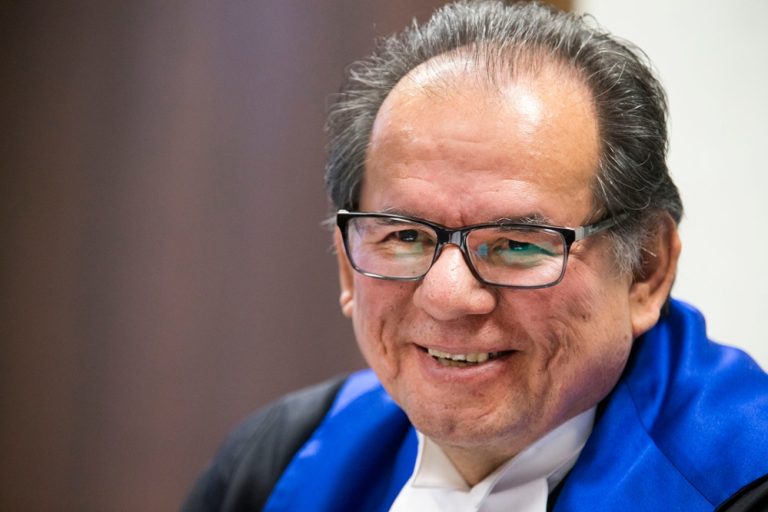
A Prince Albert judge has been appointed to the Order of Canada in honour of his groundbreaking contributions to the Cree Court Circuit and for his mentorship of the next generation of lawyers and judges.
The Honourable Gerald Morin said he was at a loss for words when he received the call from the Governor General’s office.
“My only response was, ‘wow’,” said Morin. “It was rather different.”
Morin grew up in Cumberland House, Sask. and is a member of the Peter Ballantyne Cree Nation. After starting out in the criminal justice system as a probation officer in 1973 and becoming a single father, Morin was determined to follow his dream of becoming a lawyer and eventually enrolled into the law program at the University of Saskatchewan in 1984.
After graduating, he came back to Prince Albert and began his lifelong career of integrating the Cree language into the court system.
“Having the ability to speak Cree really put me in a situation where I was able to talk to a lot of clients and got my name around into the Indigenous community,” recalled Morin. “I didn’t find law school easy; it wasn’t an easy route for me, but I always wanted to help people. It was a hard road, but I certainly have no regrets about it.”
Morin had a lot of people to thank for where he is today, including both of his parents and his sister who have passed on, his wife and son, and the Court Clerks that helped make his job easier.
“This was certainly a journey that I didn’t travel alone,” said Morin. “I had four Cree speaking clerks, those are people that were there from the start and still are. That says a lot in terms of commitment. As any judge will tell you, we can’t do our work without the clerks. They’re the glue that keeps us together.”
Morin helped pave the way for the Cree-speaking provincial court system during his years as a judge, sitting in Indigenous communities such as Sandy Bay, Whitefish First Nation and Ahtahkakoop First Nation.
“I moved the court onto the reserves so it would be more accessible for them. I looked at it in terms of where the language was being spoken at in a high rate,” he explained. “Delivering in Cree court meant a different level of access, not only physically, but being able to communicate with the court directly in a language that is their own. I think that’s very important, that was key.”
Morin said sometimes it’s hard to realize what the implications of his accomplishments were, as an insider looking out.
“Those are things you don’t easily measure,” he said. “The way we try to look at restoring justice a little bit differently having an impact in relation to the communities… It’s very much a part of my world.”
Morin stressed the importance of education for the incoming generations of Indigenous lawyers and judges; noting that it’s better to teach by example.
“It’s not so much what you tell them, but what you show them,” he said, adding that First Nations people lack the same accessibility to education as other Canadians.
“Stay in school, learn how to say a key word… ‘no’,” said Morin. “No, I have to study; no, I have to work on this project. Those are the messages the young people need.”
